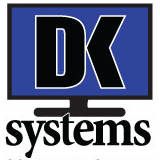
Are you a small or medium-sized (SMB) business that needs a more complete, dependable IT solution to support your business than you presently have? Other support operations tend to take a backseat because your focus is running your business, not IT support. However, like many businesses your business depends upon a reliable, stable “always running” IT infrastructure and you probably find that is not always the case. Even if you have an in-house staff, it is not large enough to put out fires and handle strategic planning and provide 24/7 support when something goes wrong. That is why many businesses, whether large or small, may rely fully or partially on the support of a Managed Service Provider (MSP).
You might be asking what are the typical services available from an MSP? Most MSP will vary slightly in offerings, but the following are the most common types of support that can be provided to clients. This guide we will break them down.

Managed IT Services
This is the overarching set of services that define the purpose of an MSP. Generally, a business will sign a service level contract with an MSP for a set of defined IT services for a period. One advantage typically derived from such an agreement is that the contract provides that you get 24/7 emergency support with priority. Typically, if you have a crisis and call a provider, the non-contract clients take a lower priority. This can mean longer downtimes and those mean revenue losses. Also, your contract with an MSP means that you can do a better job predicting your IT expenses into the future, and predictability is always a benefit for any enterprise.

Cyber Security Services
One specific area of expertise that everyone needs, no matter how small the business, is up-to-date, ongoing protection against data theft and cybercrimes. An MSP can bring a depth of knowledge that is difficult to create in-house. Ransomware and data theft are rampant. Cyber criminals attack businesses of any size (in fact, small ones can be more vulnerable. And smaller businesses often do not have the deep pockets to recover from the revenue losses of a cyber-attack). This is a very specialized sector of IT management where businesses frequently choose to use the services of an MSP because of its complexity. Also, keeping up to date with the latest malware, and handling 24/7 monitoring can be very labor intensive if done in-house.
Compliance Management
- There are several data protection laws (HIPAA, FERPA, PCI, FTC Safeguards Rule) out there that not only provide penalties if a data breach occurs, but many of them also mandate specific protocols to better ensure your data is protected. Avoiding a data breach is not enough. Some of these protocols can be quite demanding and some require periodic testing and are subject to audits. Samples of the types of requirements mandated by some of these laws may include.
- Designating one individual to oversee data protection and security.
- Conducting a risk assessment – This means analyzing what data you possess, where it is stored, and in what ways it is vulnerable.
- Creating safeguards to address all potential areas of vulnerability.
- Designing and documenting tools to secure your data and tracking access.
- Tracing the location and security of all data whether it is at rest or in transit.
An MSP can be a critical resource in designing these safety measures and ensuring your company complies and remains so. Handling compliance issues and audits can be a big distraction when you are trying to run your business and drive revenues.
To learn more about how DK Systems can help, Contact Us
